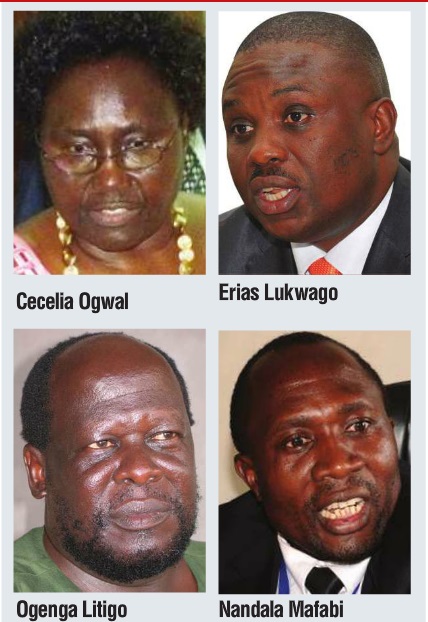The Independent has learnt that long before the February 2016 elections that renewed his grip on office, President Yoweri Museveni was toying with options of how to weaken the opposition even further after walloping it at the polls. Cooptation became his best option.

It is an old and tested political gambit. Strong but threatened regimes looking to fragment the opposition give small members of the opposition big benefits.
On the other hand, regimes that feel they have a strong hand tend to give smaller benefits to more people in the opposition.
It had worked before.
In the early 1986 government, the opposition was weak and was easily offered more seats at the table. This is because Museveni wanted them in his fold but did not feel threatened by them.
He easily reached out to the leader of the main opposition party and presumed true winner of the 1980 election, Paul Kawanga Semmogerere, and gave him a juicy posting in his NRM government.
Later, Museveni’s attempt to grab the de facto leader of the UPC, Cecelia Ogwal failed. But even with the half-full boat, Museveni enjoyed smooth sailing for at least 10-years until Ssemo, as the DP honcho was fondly called, broke ranks and run against him in the 1996 elections.
Still, Museveni ensured that he engineered a so called no-party Movement system that floated on so-called `individual merit’. It ensured that by the time he decided to challenge him, Ssemogerere did not have party machinery behind him, and Museveni had firmed his grip on power.
That changed in 2005 when multiparty politics was restored.
Now, Museveni cannot afford to appoint a strong UPC member like Olara Otunnu as prime minister, as he did with Cosmas Adyebo, James Wapakhabulo, or Specioza Kazibwe then of DP. The recent treatment of former Veep Gilbert Bukenya shows that Museveni is wary of powerful individuals with opposition leanings. Cecilia Ogwal, Ogenga Litigo, Jack Sabiiti, Nandala Mafabi, and Erias Lukwago would be a good catch for Museveni. But they have a lot to lose and he must pay a high price for them.
Then again, although Museveni has remained the alpha-male, his territory has been territory.
In 1996, the opposition enjoyed only a tiny percentage of the vote tally, but it has been increasing.
In 2016, the opposition won a high percentage despite Museveni throwing tonnes of money, patronage, and a battery of scare tactics.
The marginal returns from each venture have been reducing at every election and could be behind the current push to decimate the opposition ahead of 2021.
Therefore, even before all the 2016 votes were counted Museveni was courting the low-hanging fruits of the opposition.
Akena’s UPC proved fertile fishing ground. He courted the Obote family; first visiting the mother and attending the Akena-Amongi wedding.
It’s a two-pronged attack. Capturing UPC ensures that Akena and Amongi deliver Lango to Museveni in 2021.
Polling booth success aside, northern Uganda is central in Museveni’s calculation for driving the country to middle income status through large scale commercial agriculture (if oil dollars fail to flow by 2020).
Large tracts of empty flat land in Apac and Lira are simply too tempting.
So far, Museveni’s problem appears to be that the opposition big fish are not willing to bite. That does not mean they are not hungry.
Their view is that Museveni must deal with them as equals. They speak of a government of national unity and insist that whether he accepts it or not, Museveni is on his last leg. Therefore, they say, he represents the past and they the future. Museveni must therefore cooperate to save everyone the bother of putting down a dying horse. It could be bloody.
Mugisha Muntu has said it and Besigye insists on it.
****
editor@independent.co.ug
 The Independent Uganda: You get the Truth we Pay the Price
The Independent Uganda: You get the Truth we Pay the Price



